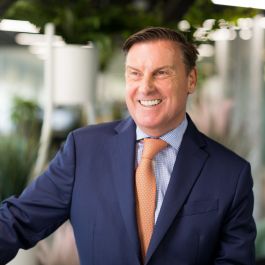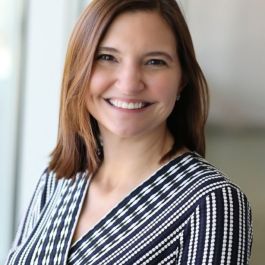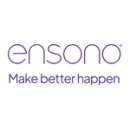Prior to the Covid-19 pandemic, it was common for tech companies to require most of their employees to work from the office.
After all, being face-to-face with colleagues seemed like a critical ingredient to building culture. Working in person facilitated bonding, made collaboration easy and created a sense of “one team.” The thought of missing out on that, paired with the idea that some jobs just couldn’t be done remotely, forced many CEOs to buck the work-from-home idea.
Peter Evans was one of them. He’s the CEO of PHMG, and was of the notion that working remotely for many jobs simply wasn’t feasible.
“But then the pandemic gave us no choice on the matter,” Evans said.
Now, Evans is a changed man on the topic. And he’s not alone. Remote flexibility is a popular new perk that has swept the tech community since the pandemic forced the world to reconsider how and where we work.
Just ask Meredith Graham, the chief people officer at Ensono.
“The important issue is getting work done, not where it’s done,” Graham said. “This has been a significant shift in our thinking.”
But that’s not the only lesson these tech leaders have learned.
Built In Chicago spoke with these two companies to discuss how they built company culture during the pandemic, and how they’re applying what they learned moving forward.
How did the pandemic and remote work change your understanding of culture-building within your company?
In my experience, the most successful businesses have strong, definitive cultures that clearly define their basis for existing, and why they’re relevant to customers. We have an established culture at PHMG of working hard, working passionately and improving continuously.
We realized quickly that we rely on culture a lot more when everyone is working from home, because we don’t have the commonality of location to bind us together.
How did you deliberately build upon your existing culture throughout 2020?
We’ve been forced to reflect on how we do things; to ensure that we’re still relevant to both our existing talent and those we want to recruit. As a result, we’ve introduced additional flexibility in terms of hours and working from home.
It’s all about making sure we’re a competitive employer that people want to choose.
Culture is a living thing — it needs to be dynamic and relevant.’’
What lessons about company culture will you take forward beyond the end of the pandemic?
The pandemic has forced us to face our fears and overcome them, so it’s actually been good for us in terms of culture.
For example, in the past I think we imagined that working from home would be unfeasible for many roles. But the pandemic gave us no choice on the matter. Thus, we’ve realized our perceptions of working from home pre-pandemic weren’t accurate.
In the future, we’re going to keep challenging ourselves and questioning what we believe to be true. Culture is a living thing — it needs to be dynamic and relevant. Our goal is to maintain 2020’s level of dynamic change going forward, while maintaining the underlying principles that have underpinned our business’s success so far.
What they do: PHMG is an audio branding agency that services over 36,000 clients in 54 countries.
How did the pandemic and remote work change your understanding of culture-building within your company?
Collaboration is essential to technology innovation and the solutions we provide to clients. It’s one of our core values, and something we have always emphasized as part of our company culture. Prior to the pandemic, we encouraged face-to-face collaboration whenever possible – and our offices were designed to facilitate this way of working together. In-person meetings were the norm.
Having to physically isolate was difficult – partners working in the same space, kids keeping up with online learning, not being able to see family or friends. Everyone, at all levels, experienced some or all of these challenges. We had to work within these challenges, and there was a real effort to over-communicate and bridge that gap. When we were in offices, the people gathered in meeting rooms who were face-to-face naturally tended to control the discussion and participate more. When we were all attending remote, there was more of an even footing. It definitely enhanced our relationship with global teams, and that has been one positive that has come from the pandemic.
How did you deliberately build upon your existing culture throughout 2020?
We also doubled-down on our emphasis on health and wellness. We provided resources for parents who were home-schooling their kids, and apps designed to encourage physical activity while giving back through fundraising challenges. Wellness and giving back have always been part of our DNA, but Covid-19 created urgent needs for many and we offered a way for associates to contribute through walking and other wellness activities.
We also encouraged associates to block three hours each Thursday — we call this “Thinking Thursday.” This is time set aside for focused work or professional development. No meetings. We also encourage associates to take breaks from their screens, or take a phone call while walking outside.
We plan to keep communicating frequently, and will also host virtual meetings on a regular basis that are not tied to a specific location or department.’’
What lessons about company culture will you take forward beyond the end of the pandemic?
We learned that we can be more flexible with where and how we work together. The standard 9-to-5 workday is a thing of the past. We can and should give people greater control over their working hours, and associates are happier because we’re giving them more flexibility. The important issue is getting work done, not where it’s done. This has been a significant shift in our thinking.
We plan to keep communicating frequently, and will also host virtual meetings on a regular basis that are not tied to a specific location or department. We want all associates to have a seat at the table, whether that table is real or virtual.
What they do: Ensono is a managed service provider that helps IT leaders by using hybrid IT to transform their businesses.








